
The main task of mineral processing plant design is to effectively separate useful minerals, gangue minerals and impurities in the raw ore through physical and chemical methods, so that the products meet the needs of smelters or other users. Common physical mineral processing methods include gravity separation, flotation and magnetic separation; chemical mineral processing methods include roasting, leaching, adsorption, replacement and extraction. The design of mineral processing methods is mainly based on the characteristics of the raw ore and the production needs of the mineral processing plant.
The design scope of mineral processing plant mainly includes comprehensive recovery, tailings facilities and ore processing workshops at various stages. The factors affecting the design of ore dressing plant mainly include product plan, ore dressing process flow, design indicators, selection of ore dressing equipment, automation control, storage facilities and maintenance of equipment and facilities.
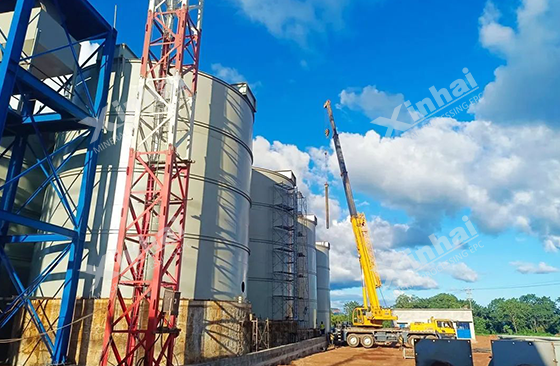
The product plan is determined mainly based on the concentrate quality standard and the customer's requirements for product quality. The principle is to recover as much mineral resources as possible to maximize economic benefits, while paying attention to the recovery of associated useful mineral components. The main product of the mineral processing plant can be a single concentrate or a mixed concentrate.
The ore dressing process mainly includes crushing, separation and concentrate treatment. Conventional crushing and grinding processes are divided into primary crushing, medium crushing and fine crushing. The medium crushing process usually uses a two-stage or three-stage closed-circuit crushing process. The design of the ore dressing process needs to consider the grinding process, follow the principle of "more crushing and less grinding", and crush as much as possible to reduce the grinding burden. When the crushing particle size is 9-15mm, the grinding efficiency can be improved and the grinding energy consumption can be reduced.
Basis for separation process design:
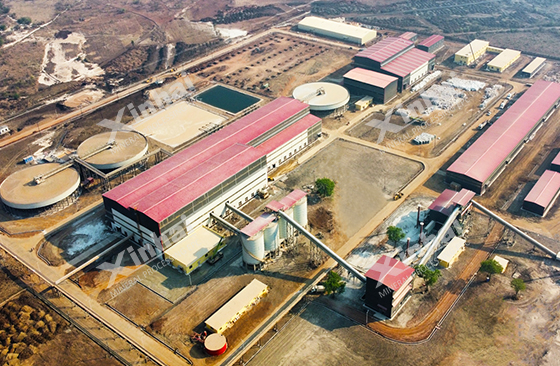
1. When the mineral floatability difference is large, the flotation process is used; when the mineral density difference is large, gravity separation is used.
2. When the magnetic difference is large, magnetic separation is used; when the conductivity difference is large, electric separation is used. Weak magnetic separation is used for magnetite ore in ferrous metal ores.
3. Strong magnetic separation, flotation, gravity separation process or roasting-magnetic separation and combined process are used to treat weak magnetic ores or mixed ores.
Mineral processing plant design indicators
The mining department provides the ore grade. The concentrate grade and recovery rate are determined through ore dressing tests, combined with production standards and user requirements, while considering the differences between test conditions and actual production and the indicators that may be achieved during the production process. In the early and late stages of production, if there are large differences in ore grade and ore selectivity, the early and late design indicators can be formulated separately.
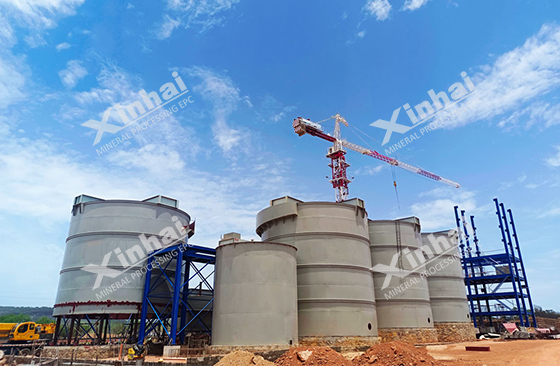
The main principles are:
1. Determine the type, specification and quantity of equipment according to the designed processing capacity, ore properties and the requirements of each process operation.
2. High efficiency, energy saving, economical and practical.
3. Auxiliary equipment should be adapted to the main equipment or system.
4. The equipment load rate of upstream and downstream processes should be balanced, the equipment type and specification in the same process should be consistent, the number of equipment should match the number of equipment series, and large equipment should be selected as much as possible.
5. After comparison, select ore dressing equipment with mature and reliable technology.
6. The equipment processing capacity refers to the actual production quota of similar industries.
When designing production inspection, multiple factors need to be considered, including ore quantity, slurry quantity, concentrate grade, ore particle size, slurry concentration, moisture content and pH value, etc., and corresponding sampling processes are usually designed. Metering equipment can be divided into dry metering equipment and wet metering equipment, among which ground scales, tape scales or other metering devices belong to dry metering equipment, while flow meters, densitometers or slurry metering samplers belong to wet metering equipment. Screening, chemical analysis, instrumental analysis and other methods can be used for the analysis of ore particle size and ore grade, or they can be carried out using current-carrying particle size analyzers, online X-ray analyzers and isotope analyzers. Material level and liquid level are measured using material level meters and liquid level meters respectively.
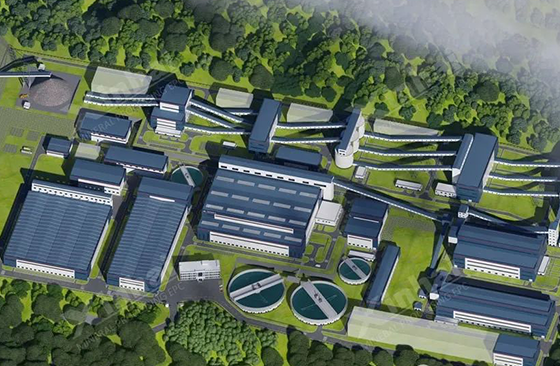
1. Raw ore receiving bin: generally rectangular funnel bins are used.
2. Intermediate ore bin or ore pile: Intermediate ore bins with ground or semi-underground structures are used in large ore dressing plants or ore dressing plants that process multiple ores.
3. Slow-release ore bin: commonly a trough structure. Flat-bottomed trough bins are used to store large ores, while ores containing more powder ore use a bucket structure with three or four sides tilted.
4. Grinding ore bin: generally an elevated structure is used, usually circular or trough-shaped. The plant structure has three forms: multi-story, single-story and mixed.
5. Product ore bin: Elevated or grab ore pool structures are common structures for product ore bins, which are convenient for installing large and vibrating equipment. They are mostly built on hillsides, and their storage time depends on transportation conditions.
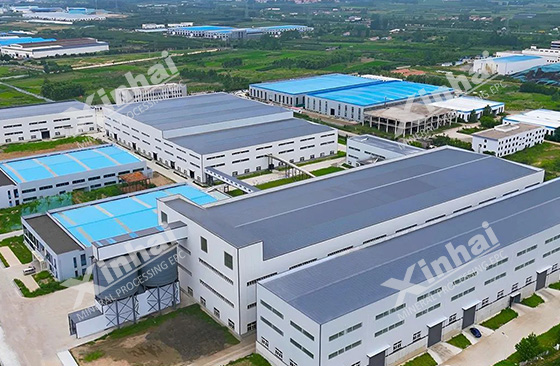
Design is a vital part of engineering construction. It is a bridge that transforms advanced science and technology into productivity. Reasonable design of mineral processing plant can not only effectively reduce the initial investment of engineering construction, but also significantly reduce production costs, improve resource utilization and overall economic benefits. At the same time, scientific design of mineral processing plant provides a reliable basis for project decision-making and ensures the smooth progress of each link. In addition, reasonable design can also optimize the process flow, improve production efficiency, reduce environmental impact, and meet the requirements of sustainable development. In the mineral processing industry, the importance of design is self-evident. It is not only related to the success or failure of the project, but also directly affects the competitiveness and market position of the enterprise. Therefore, paying attention to the design link and using advanced design concepts and technical means are the key to promoting the continuous progress and development of the mineral processing industry.
To find out more about our products and solutions, please fill out the form below and one of our experts will get back to you shortly.